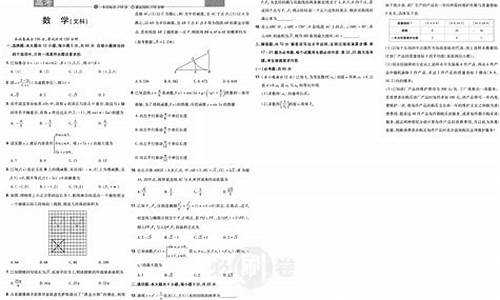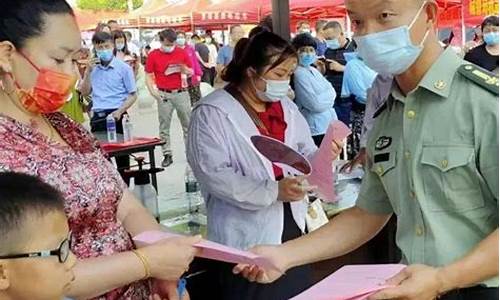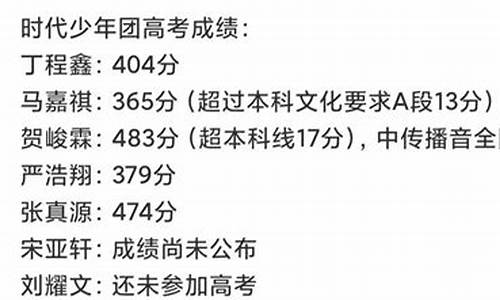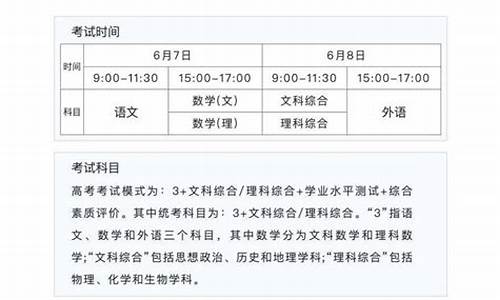您现在的位置是: 首页 > 教育政策 教育政策
高考语法讲解-高考语法专项
tamoadmin 2024-08-19 人已围观
简介1.高考英语语法:高中英语语法-高一英语总复习102.高考英语语法:高中英语语法-倒装用法归纳之一3.高考英语语法必考点与常考点归纳(背诵版)4.高考英语语法填空技巧_关于高考英语短文语法填空5.高考英语语法:高中英语语法-简单句、并列句和复合句高考英语语法:高中英语语法-高一英语总复习10《高中英语语法-高一英语总复习10》由liuxue86我整理。本内容整理时间为05月12日,如有任何问题请联
1.高考英语语法:高中英语语法-高一英语总复习10
2.高考英语语法:高中英语语法-倒装用法归纳之一
3.高考英语语法必考点与常考点归纳(背诵版)
4.高考英语语法填空技巧_关于高考英语短文语法填空
5.高考英语语法:高中英语语法-简单句、并列句和复合句
高考英语语法:高中英语语法-高一英语总复习10

《高中英语语法-高一英语总复习10》由liuxue86我整理。本内容整理时间为05月12日,如有任何问题请联系我们。
高一英语总复习10
Unit 13-14, SBⅡ
重点词语:
1.junk food 垃圾食物
2. in the future 在将来
3. plenty of 大量
4. ought to 应该
5.keep up with 赶上
6. no longer 不再
7.had better 最好
8. make choices about 在方面做出选择
9. be good for 对有好处
10. offer advice about 在方面提供建议
11. keep a balanced diet 保持均衡饮食
12.lose weight 减肥
13. keep fit 保持健康
14.in life 一生中
15. gain weight 增肥
16. now and then 不时, 时而
17. cut?into pieces 把切成一片片
18. roll up 卷起来
19. make a list 列一个清单
20. he a fever 发烧
21. become part of 成为的部分
22. dress up 打扮, 盛装
23. make a decision 做决定
24. a seven-day festival 一个七天的节日
25. get together 聚在一起
26. as?as one can 尽某人所能
27. play a trick on 捉弄某人
28. give away 藏起来
29.care about 关心, 关爱
30. take in 欺骗
难点讲解:
1. hurt
用法一vt. 痛
例如:I got a fall just now, and my knee hurts a lot. 我刚才摔了一跤,现在我的膝盖痛极了。
用法二vt. 使痛;伤害
例如:He hurt his left leg in the physical education lesson.
在体育课上他把自己的左腿给弄伤了。
用法三vt. 伤害(情感等)
例1::Her words hurt me a lot. 她的话很伤我的心。
例2:Your words hurt her feelings.你的话伤了她的感情。
用法四hurt n. 伤害
例如:It was a severe hurt to his pride. 那对他的自尊心是个严重的创伤。
相关链接
hurtful adj. 有害的
例如:Eating too much is hurtful to health. 吃得太多有损健康。
2. contain
用法一vt. 包含;含有
例1:This kind of plant contains lots of water. 这种植物含有丰富的水分。
例2:The atlas contains twenty maps. 这本地图册由20幅地图集成。
用法二vt. 等于(be equal to). 折合
例如:A gallon contains eight pints. 1加仑等于8品脱。
用法二
container n. 容器
例如:Is the container large enough for that? 这个容器能装得下那东西吗?
3. equipment
用法n. [U] 设备;装备
例1:He offered us a new piece of equipment. 他给我们捐助了一件新设备。
例2:This is a shoe factory with modern equipment. 这是家制鞋厂配有现代化设备的鞋厂。
相关链接equip vt. 装备;配备
例1:Our army is equipped with modern weapons. 我们的军队已经配备了现代化的武器。
例2:Everyone, equip yourself for the task. 大家注意啦,把东西准备好,去干吧。
4.give advice on?
give advice on ?就提出意见(看法)
例1:Please give me some advice on my English learning. 请对我的英语学习提出一些意见。
例2:Marx ge some advice on how to learn a foreign language. 马克思对如何学习外语提出了自己的看法。
5.make suggestions
make suggestions 提出建议
例如:He was asked to make suggestions for their experiment.他们请他对他们的实验提出一些建议。
6.all the time
all the time 一直
例如:They went on well with their research all the time. 他们的研究一直进展顺利。
7.be careful with
be careful with留神;小心
例如:You should be careful with your spelling. 你在拼写方面应当仔细一些。
相关链接
1) be careful 小心;留神
例1:Be careful not to make the same mistake again. 小心别再犯同样的错误。
例2:Be careful with what you are doing. 留神一点,别出差错。
2) be careful of当心
例如:Don't drink too much. Be careful of your health. 别喝太多了,当心你的身体。
3) be careless in 在方面粗心大意
例如:He is always careless in his work. 他在工作中老是粗心大意。
8. keep up with
keep up with 与保持一致;跟上
例1:I he to work hard to keep up with my classmates. 为了跟上我的同学,我必须努力学习。
例2:Dad, please slow down a bit. I can't keep up with you. 爸,请您走慢一点;我跟不上您了。
相关链接
1) keep up 保持(高昂的气势等)
例1:Prices still keep up. 物价仍然高居不下。
例2:I really hope that such nice weather will keep up. 我真希望这样的好天气能再持续下去。
2) keep out (使)不进入
例1:Danger! Keep out! 危险!不要入内!
例2:They shut all the windows to keep out the cold air. 他们将窗子全关上了,不让冷空气入室。
3) keep off 使不靠近
例1:They made a fire to keep off wild animals. 他们生了一堆火来驱赶野畜。
例2:They put up a notice in the garden, saying, "Keep off".
他们在花园里是竖起一块牌子,上面写着"匆踏草地"。
4) keep away (from?)使远离;不接近
例1:You must keep the children away from the pool. 你一定不要让那些孩子靠近水池。
例2:What kept you away yesterday? 你昨天怎么没有来?
9.make (many) choices
make (many) choices 作出(许多)抉择
例1:We should learn how to make choices. 我们应当学会如何作出选择。
例2:She has made a good choice to marry him. 她决定嫁给他是一个好的选择。
10.be good for
be good for 对有好处
例1:Doing more exercises is good for your health. 多做体操对你的身体健康有益。
例2:Eating les is good for your brain. 吃苹果对你的大脑有益。
相关链接
1) be good at 擅长
例如:My seatmate is good at playing computer games. 我的同桌很会玩电脑游戏。
2) do good to 对有好处
例如:Eating more vegetables does good to your health. 多吃蔬菜有益于你的健康。
11.bass? on
bass ?on 建立在基础上;以为根据
例1:His theory is based on many experiments. 他的理论是建立在多次实验基础上的。
12.be harmful (to)
be harmful (to ) (对)有害
例1:Smoking is harmful to your health. 吸烟有害于你的健康。
例2:Reading in bed is harmful to your eyesight. 躺在床上看书对你的视力有害。
相关链接
1) do harm to 对有害
例1:Eating a lot and exercising little do harm to your health. 吃得多而锻炼少对你的健康有害。
例2:That kind of work does much harm to workers' lungs. 那种工作对工人的肺部健康有极大的损害。
例3:It will do you no harm. 这对你无害。
例4:There's no harm in your staying up late occasionally. 你偶尔迟睡无伤大雅。
2) harm vt. 伤害
例如:Years of hard work harmed her a lot. 多年的劳累对她的身体伤害很大。
13.choose from
choose from 从中选择
例1:The teacher chose three from us boys to do the job.
老师从我们男生中选了三个同学去做那件事。
相关链接
1) take one's choice 任某人自行选择
例如:There're many kinds of toys. Take your choice, Tom. 有多种玩具。汤姆,你自己随便挑一件吧。
2) one's choice 所选定的人或物
例1: "He's my choice, Dad," said the girl shyly. "爸,他就是我的意中人。"那姑娘腼腆地说。
例2:That's my choice. 我就要那个了。(那就是我的选择。)
14.be prepared for
be prepared for 为做好了准备
例1:We are prepared for the coming test. 我们已做好了迎考准备。
例2:Are you all prepared for the performance? 你们都做好了演出的准备工作吗?
相关链接
1) prepare ? for ? 为做准备
例1:The hostess has prepared everything for the guests. 女主人为迎接客人做好了充分的准备。
例2:We he to prepare ourselves for the school sports meet. 我们必须为参加校运会做好充分的准备。
2) be ready for 为做好了准备
例1:Are you ready (for the dictation)? 你们(为听写)准备好了吗?
例2:I'm always ready for my motherland. 为了祖国的利益,我时刻准备着。
3) get ready for把准备好
例1:Get the room ready for our meeting, Mary.
玛莉,去把房间收拾一下,我们要开个会议。
例2:Why not get yourself ready for the final test, Jim? 吉姆,怎么不去为期末考试准备一下呢?
15.be short of
be short of 缺少
例1:We are short of workforce and money for the project. 进行这项工程,我们还缺少劳力和资金。
例2:The crops are short of water, for it hasn't rained for days.这些农作物缺水,因为有好些日子没有下雨了。
相关链接
in short 简言之;一言以蔽之
例1:In short, Mr. White has devoted so much to our school. 简言之,怀特先生为我校做出了太我的奉献。
例2:In short, we should depend on ourselves in our studies. 简言之,在学习方面我们得依靠自己才行。
16.stay fit and healthy
stay fit and healthy 保持健康状况
例1:Good diet helps you stay fit and healthy. 良好的饮食习惯能使你保持健康。
相关链接
1) keep fit 保持健康
例1:Mum often dances to keep fit. 妈妈常跳跳舞来保持形体匀称。
2) stay up 熬夜(读书、工作等)
例1:He stayed up reading till midnight. 他读书直到半夜。
例2:Never stay up, especially before an important test. 不要开夜车,尤其是在大考前不要这样。
17.describe
用法vt. 描述;描绘
例1:The police asked the lady to describe what she had seen.警察要那位女士把她当时所见的一切描述一番。
例2:The leader of the workers described a bright future for the workers.那位领袖向那些工人们描绘了一幅美好未来的景象。
相关链接
description n. 描写;描述;形容
例1:She's given a vivid description of her beautiful village.她如实地把自己美丽的村庄进行了一番描述。
例2:The scenery was beautiful beyond my description. 那景致美得我难以形容。
例3:Can you give a description of the robber?你能说出那抢劫犯的模样吗?
18.Fourite
用法一adj. 最受欢迎的;最令人喜爱的
例1:Her fourite food is fish.她最喜欢的食物是鱼。
例2:What's your fourite subject?你最喜欢哪一门学科?
用法二n. 最受喜爱的(人或物)
例1:The secretary is the fourite of the chief manager. 那位秘书是总经理的宠儿。
例2:The dog is my grandma's fourite.那条狗备受我奶奶的宠爱。
相关链接
1)four n. 恩宠;关爱
例1:With her boss's four, she's always putting her nose up.因为有了她的老板宠着,她总是摆出一副趾高气扬的样子。
例2:The old teacher is high in his students' four.那位老教师深受她的学生敬爱。
2)four vt. 偏袒;对有利
例1:A teacher should not four any of his students.老师不应当偏袒任何一个学生。
例2:Could you four us with another song?请你再给我们唱一首歌,好吗?
例3:The weather foured our journey.天气好,使得我们旅行非常顺利。
3)in sb.'s four 对某人有利
例如:The situation is in our four (=in four of us )形势对我们有利。
4)do sb. a four (=ask a four of sb.)帮某人一个忙
例1:Could you do me a four, sir?先生,您能帮我一下吗?
例2:May I ask a four of you?请您帮个忙,好吗?
5)fourable adj. 有帮助的;赞许的
例1:The newcomer will be fourable in our work.新来的伙计会对我们的工作有帮助。
例2:Is Mr. White fourable to our 怀特先生赞成我们的提议吗?
19.allow
用法 vt. 同意;许可
例1:My parents allow me to play computer games only on Sundays.仅仅在星期天我的父母才同意我玩电脑游戏。
例2:Our school doesn't allow going swimming on weekdays.我校不允许任何人在工作日去游戏。
注意:当allow 后面不带宾语(sb.)时,不用不定式,而用v-ing形式。
20.argument
用法n. 争辩;争论
例1:There was an argument between them about what food should be for their son's birthday dinner.他俩为儿子生日晚餐应吃什么争了起来。
例2:The misunderstanding caused the argument.误解导致了这次争吵。
相关链接
argue vi. 争辩;争论
例1:What did they argue about last night?他们昨晚为了什么争论起来了?
例2:I don't want to argue about it with you any more.我不想为这事再与你争了。
21.create
用法一vt. 创造
例1:Most Westerners believe that God created the world.
大多数西方人信奉:上帝创造了世界。
例2:In her novel she created a few honest characters.她在中创造了几个诚实的人物。
用法二vt. 生产;制造
例1:What he did has created a bad impression.他的行为给人一种恶劣的印象。
例2: The factory has created better products.这家工厂生产(制造)了更好的产品。
相关链接
1)creation n. 创造;产品
例1:Her work is really a great creation in arts.她的作品真是一件了不起的艺术品。
例2:No on knows the creation of the world.无人知晓世界是怎样产生的。
2)creative adj. 有创造力的;具有创造性的
例1:That's a creative idea.真是一个有创意的想法。
例2:Mr. Brown is a creative bridge designer.布朗先生是一位有创意的桥梁设计师。
22.characteristic
用法n. 特点;特征
例1:Humour is one of his characteristics.幽默是他的特点之一。
例2:These are the characteristics of the old temple.这些就是这座古寺的特征。
相关链接
character n. 性格;特性(点);人物;文字
例1:He is man with determined character.他是一个性格果断的人。
例2:What's the character of your newly made machine?你们新近生产的机器有什么特点?
例3:Sports are good for a student to build his character.
体育运动有助于学生人格的形成。
23munity
用法 n. 社区
例1:He is head of the Chinese community in San Francisco.他是旧金山华人社区的负责人。
例2:She goes to the community center every day。她天天去社区活动中心。
相关链接
1)commune n. 公社
例如:the Commune of Paris 巴黎公社
2)communist n. 共产主义者;adj. 共产主义的
例1:Many communists lay down their lives during the Revolution.革命时期许多共产主义者牺牲了。
例2:The Communist Party of China was founded in 1921.中国***是1921年成立的。
3)communication n. 沟通;通信
例1:Learn to use the computer if you want to he good communication with the world.
如果你想能够与世界好好沟通的话,去学习使用电脑吧。
例2:Advanced countries usually he excellent communications.发达国家通常具有完备的通讯网络。
24.solve
用法 vt. 解决(问题)
例1:We he to find ways to solve the traffic problems.我们得想出办法来解决交通问题。
例2:All the problems he been solved.所有的问题都已解决。
25.fool
用法一vt. & vi. 欺骗;愚弄;捉弄
例1:The man fooled her out of all her money.那男子把她的钱全骗走了。
例2:The politician fooled lots of people into believing his words.那个政客骗得许多人相信了他的话。
例3:Can't you stop fooling?别再做傻事行不行?
用法二 n. 傻瓜,呆子
例1:Tom is a fool, who even believes in her.汤姆真是傻子一个;他居然相信她。
例2:You fool! 你真傻!
用法三adj. 愚笨的
例如:I was fool enough to do that for her.我真够笨的,居然会为了她去做那样的事。
相关链接
foolish adj. 愚蠢的;不明智的;荒谬的
例1:Not being able to tell the difference, you are foolish这种区别也分辨不清,你真蠢。
例2:It was foolish of her to marry that man.她把自己嫁给了那男子,真不明智。
例3:She looks foolish in that dress.她穿那样的衣服,看起来真可笑。
26pare?with?
compare?with?与进行比较
例1:Let's compare Christmas with the Spring Festival, shall we? 咱们将"圣诞节"与"春节"进行一番比较,好吗?
例2:Why not compare your homework with hers?何不将你自己的作业与她的作业比较一下呢?
注意:compare to表示"把比作"。
例如:Girls are usually compared to flowers.女孩常被比作花朵。
27.learn about
learn about 了解
例如:Scientists are trying to learn more about the ocean.科学家们在设法更多地了解海洋。
相关链接
1)learn from sb. 向某人学习
例如:We should learn from Comrade Lei Feng.我们应当向雷峰学习。
2)learn?from sb. 从某人那里得知
例如:I learnt the news from Mr. Wang. 我是从王老师那里得知这一消息的。
3)learn of ?.得知
例如:I learned of her lung cancer this morning.我是在今天上午才得知也患了肺癌。
4)learn?by heart 熟记;背诵
例如:Class, please learn this paragraph by heart.同学们,请认真记熟(背诵)这一段。
28.get together
get together 聚会;联欢
例1:They are to get together next Saturday.他们于下周星期六进行联欢。
例2:All of my classmates will get together in our former class adviser's home.我们全班同学会去我们原班主任家里聚会。
相关链接
1) get along 设法度过;活过
例如:I can hardly get along Christmas without sending you a gift.在圣诞节不给你送一件礼物,我真不知怎样度过这个节日。
2)get along with sb. 与某人相处
例如:The newcomer is getting along well with all of us.这位新来的同学与我们大家相处甚好。
3)get along with sth. 某事进展
例如:How are you getting along with your English studies?你的英语学习进展如何?
4)get away with sth. 拿某物潜逃;卷走某物
例如:The manager has got away with a large amount of money.那经理携持巨款潜逃了。
5)get back 回来;取回
例1:He got back from abroad yesterday.他昨天从国外回来。
例2:Go and get back my magazine.
去把我的杂志取回来。
29.in common
in common相同
例1:Chinese and Japanese he a lot in common in eating.在吃的方面,中国人和日本人有许多相同之处。
例2:They he nothing in common with one another.他们彼此毫无共同之处。
30.believe in
believe in 信任;信赖
例1:Most Westerners believe in God.大多数西方人信奉上帝。
例2:Fewer and fewer citizens believe in their in the country.在那个国家,越来越少的市民对存有信心。
相关链接
believe vt. 相信(某人说的话)
例如:No one believed him (his words / what he said.)
没有人相信他说的是真话。
31.give away
give away 赠送;分送;泄露
例1:He ge away most of his money to the poor villagers.他把大部分钱都给了那些贫苦的村民。
例2:The headmaster ge away each of us a medal at the celebration.在庆功会上,校长给我们每人发了一枚勋章。
例3:His accent ge him away.他的口音暴露了他的身份。
32.play tricks on sb.
play tricks on sb. 捉弄某人;开某人的玩笑
例如:Jack likes playing tricks on his classmates.杰克喜欢捉弄他的同学。(杰克喜欢拿他的同学寻开心。)
33.take in
take in上当;吸收(营养、水分等);招收
例1:She is easy to be taken in.她很容易上当。
例2:My sister was taken in by Beijing University last year.去年我姐姐考上北大了。
- 《高中英语语法-高一英语总复习10》由liuxue86我整理
高考英语语法:高中英语语法-倒装用法归纳之一
《高中英语语法-倒装用法归纳之一》由英语我整理,更多请访问:s://.liuxue86/english/。本内容整理时间为05月12日,如有任何问题请联系我们。
倒装用法归纳之一
倒装是中学阶段的一个重要的语法知识点,也是高考命题热点之一。下面笔者就来谈谈它的用法。
一、完全倒装
完全倒装是把谓语动词完全置于主语前,其中主语必须是名词,若为代词则不倒装,这种结构中谓语部分无助动词( be ,do ,he )和情态动词,但可以有连系动词 be .须用完全倒装的情况有:
1. 当句首为副词 out ,in ,up ,down ,off ,here ,there 等,且主语为名词时,应用完全倒装。如:
In came the doctor. 医生进来了。
There goes the bell. 铃响了。
2. 当表示地点的介词短语位于句首,且主语为名词时,应用完全倒装。如:
On top of the hill stands a big pine tree.
山顶上耸立着一棵大松树。
Under the tree were some children.
树下有一些孩子。
3. 在 there be 结构中,there 为引导词,be 动词之后为句子的主语,属完全倒装,be 应与主语保持一致。除 be 以外,能与 there 连用的动词还有 seem ,exist ,hen ,ear ,live ,stand 等。如:
There were a lot of people in the park last Sunday.
上周日公园里有很多人。
Once there lived a king who was cruel to his people.
从前有一位对人民很残暴的国王。
4. 作表语的形容词、过去分词等较短,而主语相对比较长,为了保持句子平衡而将表语前置时,句子的主谓也应完全倒装。如:
Typical for China is the crosstalk show, in which two comedians entertain the audiences with words.
中国典型的艺术形式是相声,两名演员用言语来逗乐观众。
Gone are the days when we Chinese were looked down upon.
中国人民被歧视的日子已成为过去。
5. 某些表示祝愿的句子也可用完全倒装(或部分倒装)。如:
Long live the Chinese Communist Party of China!
中国***万岁!
May you succeed!
祝你成功!
二、部分倒装
部分倒装则是将助动词调到主语前,主语可以是名词也可以是代词。通常应使用部分倒装的情况有:
1. 当句首为否定或半否定词 never ,neither ,nor ,little ,seldom ,hardly ,scarcely ,in no way ,few , not ,no 等时,应用部分倒装。如:
Seldom does he spend his time playing cards.
他很少花时间去玩。
Never he I heard of that place before.
我以前从未听说过那个地方。
2. only 修饰时间、地点、方式、原因等状语时,应用部分倒装。如:
Only in this way can we solve the problem.
只有这样,我们才能解决这个问题。
Only when you told me did I know her name.
直到你告诉我,我才知道她的名字。
注意:如果 only 修饰的不是状语,则句子不倒装。如:
Only Uncle Li knows how it hened.
只有李叔叔知道这件事是怎么发生的。
3. 表示对前者的陈述也适用后者时,肯定倒装用? so + 助动词/情态动词 + 后者?,否定倒装用? neither / nor + 助动词 / 情态动词 + 后者?。如:
He can speak English,so can I.
他会说英语,我也会。
If she doesn?t go there tomorrow,neither / nor will I.
如果她明天不去那儿,我也不去。
注意? so + 助动词 / 情态动词 + 主语?与? so + 主语 + 助动词 / 情态动词?的区别:
前者表示所说的主语和前面主语的情况一样,所谈到的是两个人或物,意为也是这样?;后者所谈为同一人或物,说话者表示同意前者的观点,意为?的确如此?。如:
? Li Lei likes sports. 李雷喜欢运动。
? So he does and so do I. 他的确喜欢,我也是的。
4. so 及? so + 形容词 / 副词?置于句首时,应用部分倒装。如:
So frightened was he that he didn?t dare move.
他如此惊慌以至不敢动弹。
So quietly did she speak that we could not hear a word.
她说话声音这么低,以至我们一个字也没听到。
5. such 及? such + 形容词 + 名词?置于句首时,应用部分倒装。如:
Such is Zhong Cheng, a kind and helpful student.
这就是仲成,一个善良、乐于助人的学生。
Such good players are they that they often win.
他们是好队员,所以他们经常获胜。
6. 由 not only ? but also ? 引起的并列句,若将 not only 置于句首时,该分句应部分倒装, but also 引导的分句不倒装。而由 neither ? nor ? 引起的并列句,两个分句都倒装。如:
Not only did he give me some advice,but also he lent me some money.
他不但给我提了建议,而且还借给了我一些钱。
Neither does he watch TV,nor does he see films in the evening.
他晚上既不看电视也不看**。
7. 由连接词 No sooner ? than ,Scarcely ? when ,Hardly ? when 引起的主从复合句,主句应倒装,从句不倒装。如:
No sooner had he gone to bed than he fell asleep.
他一上床就睡着了。
Hardly had I got into the classroom when it began to rain.
我刚一进教室天就下起雨来。
8. not until 引起的时间状语置于句首时,句子的主谓应部分倒装。由 not until 引导的时间状语从句位于句首时,主句应部分倒装,从句语序不变。如:
Not until 1998 did he return to his hometown.
直到 1998 年他才回到家乡。
Not until Father came back did we begin to he supper last night.
昨晚直到父亲回来,我们才开始吃晚饭。
注意:当 not until 引导的状语或状语从句用于强调句型时,句子的主语不倒装。如将上两句改为强调句应为:
It was not until 1998 that he returned to his hometown.
It was not until Father came back that we began to he supper last night.
9. 省略 if 的虚拟条件句,可将 were ,had ,should 提至主语前。如:
Were I you,I would go there tomorrow.
要是我是你,我明天就会去那儿。
Had you been there,you would he met the manager himself.
要是你去了那儿,你就会见到经理本人了。
10. 表示时间频率且有肯定意义的词语 often ,every day ,now and again 等置于句首用来强调时,应用部分倒装。如:
Often does he send me e-mails to greet me.
他经常给我发电子信件问候我。
三、主谓不倒装的倒装句
1. as / though 引起让步状语从句,可将表语或状语置于句首,但主谓不颠倒顺序。如:
Tired as / though he is,he is still working. 《高中英语语法-倒装用法归纳之一》由英语我整理,更多请访问:s://.liuxue86/english/
高考英语语法必考点与常考点归纳(背诵版)
语法点一、名词和冠词
考点有名词的可数与不可数,名词的格,名词作定语,冠词的考点是,定冠词与不定冠词,零冠词.
二、代词和it的用法
一般常考的是other,another,the other,others的区别,both,either,neither,all,every,each,none的区别。
还有something,anything,everything的用法(这个比较简单)这一块最难的应该是it,that,one作代词时的区别了。
三、介词和连词
一般考动词的固定搭配,in,at,for,to,of,on,with,about,from,into,after···常用介词.连词最常考得应该是“除此之外”了,expect,expect for,besides,还有表原因的连词;as,for,since,because的区别。
四、形容词和副词
这一块比较简单最常考的就是比较级了,其次是以ly结尾但不是副词的词了,比如说friendly是形容词,形容词的排序问题在今年的高考中也出现了,不过这个是基础但不是重点。
五、动词和动词短语
这个考点是重点,在完形填空及改错和单选中是必考的,这个只能靠你自己的积累,课本中的动词短语是重点,必须记下来。
六、情态动词和虚拟语气
常见的情态动词就够应付考试了,虚拟语气是高中语法的难点但不是重点。
七、动词的时态和语态(就是主动句和被动句)
时态有一般现在时,一般过去时,现在进行时,过去进行时,一般将来时,现在进行表将来,一般现在表将来,过去将来时(一般不考),现在完成时,过去完成时,现在完成进行时(现在很常考)。
八、非谓语动词
动名词作主语,不定式作主语,动名词作宾语,不定式作宾语,动名词作定语,不定式做定语,这一块也比较简单九、数词和主谓一致,数词的考点;基数词,序数词,分数,百分数,(这一块既不是难点也不是重点),主谓一致在以前比较重要,现在地位有所下降。
十、简单句和并列句
十一、定语从句
这可是重点,不过只要上课认真听,这一块其实不难理解。
十二、名词性从句
常和定语从句进行比较区别,尤其是what和that的区别。
十三、状语从句
时间地点状语从句,原因状语从句,结果状语从句,方式状语从句,目的状语从句,有一个问题可以总结以上三个从句。
十四、省略,倒装和强调
比较常考的是,部分倒装和全部不倒装,这一块就这一个重点。
十五、交际英语
也就是口语,这一部分现在很火,每年必考,这个只有靠自己总结.以上就是十五道选择题的来源,当然,不是哪个都会考得,只要学会以上十五个考点,在高考时绝对没问题。
扩展资料:
学好语法的办法:
1、代词。学习代词,首先要对代词的定义、性质、功能及种类有一定的认知;掌握各类代词的用法以及人称代词前后指称的一致的用法。其中各类代词的用法以及不定代词的用法极其构成的固定搭配是学习重点。下面我给出我的学习建议:同学习名词一样,掌握了各个语法要点之后做练习。
2、数词。学习数词时,掌握各类数词的用法、倍数表达法、基数词的特殊念法与时间和数字有关的数词。其中各类数词的用法是学习重点。
3、形容词。掌握形容词的位置及使用顺序和“级”的概念,能辨析不同词缀的形容词。其中形容词的辨析是学习的难点。
4、副词。学习副词,要掌握副词在句子中的位置、顺序和意义相近副词的辨析。其中副词在句中的位置、功能是学习重点,而意义相近副词的辨析是学习难点。
高考英语语法填空技巧_关于高考英语短文语法填空
短文填空题,又可称之为首字母填空,顾名思义,根据短文内容及首字母提示,填写所缺单词,使短文意思完整,每空限一词。我整理了关于高考英语短文语法填空,欢迎阅读!
关于高考英语短文语法填空篇一阅读下面短文,按照句子结构的语法性和上下文连贯的要求,在空格处填入一个适当的词或使用括号中词语的正确形式填空。
One day, my friend showed his forite book to me. He also said it was __16__ second part of the very famous book - Adventures of Huckleberry Finn.
I borrowed the book from a young librarian and I enjoyed reading it __17__ (immediate).I realized __18__ wonderful books could be! Adventures of Huckleberry Finn is filled with adventures. The main character was Huckleberry Finn, a poor English boy, __19__ father was a low class drunk, and wanted to get his son?s fortune which Finn had gotten previously in another adventure with his friend, Tom Sawyer. __20__, Finn ran away from his father and met another boy called Jim. __21__ friends went to the sea and got on a ship. They also went to __22__ (variety) islands in the sea and had many adventures. Eventually Finn returned home, only __23__ (find) that his father had died. From then on he has no longer been in any danger. Jim also got his freedom __24__ Finn?s help.
This novel __25__(write) by the well-known English author Mark Twain who also wrote the famous book Tom Sawyer.
参考答案
16. the 17. immediately 18. how
19. whose 20. Therefore 21. Both
22. various 23. to find 24. with 25. was written
语法填空
16. the。考查冠词。序数词前面用定冠词来修饰。
17. immediately。考查词类转换。此处用副词来修饰动词。
18. how。考查关系副词。how引导宾语从句并在从句中作状语。
19. whose。考查定语从句。该空后有名词father作主语,故填关系代词whose引导定语从句修饰先行词boy。
20. Therefore。考查连词。根据句意,Finn的父亲想得到儿子的财产,因此,儿子要逃跑。
21. Both。考查代词。这里用both专指Huckleberry Finn和Tom Sawyer两个人。
22. various。考查词类转换。这里应该填形容词various 修饰名词islands。
23. to find。考查非谓语动词。only to do sth表示一种出乎意料、不期望看到的结果。
24. with。考查介词。with sb?s help 意为?在某人的帮助下?。
25. was written。考查动词形式。根据句意,这本书是由Mark Twain 写的。
关于高考英语短文语法填空篇二Jonny:Hey!I'm just practicing Tai Chi(太极).Would you like to join me?
Peter:I know nothing about it. Is it difficult?
Jonny:It seems easy,but you need a lot of practice. You just follow me like this.
Peter:OK. Don't laugh__1__ me. I may look funny.
Jonny:Bend your knees slightly and reach out your arms like tree branches,naturally and__2__(soft).Try to keep your body straight. Move slowly,then be sure to keep your balance and don't let your body shake.
Peter:I cannot control my body well. My legs become__3__(pain).
Jonny:Keep __4__(hold)your position for a while. It helps develop your strength and flexibility. Raise your leg and let__5__ stay in the air for seconds.
Peter:I feel my legs shaking. I cannot do this any longer.
Jonny:Be patient!Tai Chi__6__(call)?shadow boxing? in English. It asks you to act like water:to be flexible as well__7__ strong. In real competition,a Tai Chi master borrows the strength of the compe and uses this energy to fight back. The__8__(hard)you try to beat him,the more likely you will get hit. He controls you!
Peter:Unbelievable!Oh. . . ,__9__ you don't mind,I'll stop and take a deep__10__.
1.解析:laugh at sb. ?嘲笑某人?。
答案:at
2.解析:and连接并列成分,前面是naturally,所以后面用softly。
答案:softly
3.解析:become后接形容词,构成系表结构,故用painful。
答案:painful
4.解析:keep doing?持续/一直在做某事?。
答案:holding
5.解析:特指your leg。
答案:it
6.解析:此处表示被动。
答案:is called
7.解析:as well as 是固定搭配,意为?也,还?。
答案:as
8.解析:此处为the harder. . . the more. . . 结构,表示?越.. . 就越.. . ?。
答案:harder
9.解析:?如果你不介意的话?,表示条件。
答案:if
10.解析:take a deep breath?深呼吸?。
答案:breath
关于高考英语短文语法填空篇三My mother and I walked down to the rocky coastline near the cabin in Maine. We collected stones. By the time I was 7,my mother had taught me to know the ones worth__1__(keep): We hunted for polished rocks,marbled greenstone.
We wandered far apart that day. On my side of the long beach,I picked up a rounded piece of granite__2__(circle)by white veins of quartz. I saw the rock had been split;a break recent enough__3__the edges weren't exactly smoother,old enough that they weren't exactly __4__(sharp).
Then my mother called to me,and we walked __5__(meet)each other. I had half a stone in my hand to show her. She pulled the other half from her pocket and shouted her__6__(astonish).I laughed. It couldn't be. It was. The seagulls cackled with us.
Twenty?three years since that morning,and still we are together and separate,__7__(move)apart and back,over and over. Always the reminder sits in a glass?paned cabinet__8__ the dining room of the family home,two flawed pieces of stone held together with__9__ faded rubber band. Proof that once,__10__(incredible),we found the far?flung halves of a broken thing and made them whole again.
1.解析:结合前面的形容词worth+doing的用法,因此填keeping。
答案:keeping
2.解析:根据语境,此处circle与前面的granite构成动宾关系,因此用过去分词作后置定语。
答案:circled
3.解析:根据语境,此处that引导了一个结果状语从句与后面的old enough that. . . 呼应。
答案:that
4.解析:与前面的smoother呼应,指?也不那么的锋利?,因此使用比较级。
答案:sharper
5.解析:根据前面的walked可知,此处用不定式作目的状语。
答案:to meet
6.解析:前面是一个形容词性物主代词,因此后面用名词。
答案:astonishment
7.解析:根据语境,此处用现在分词短语作伴随状语。
答案:moving
8.解析:结合后面的地点,表示?在?里面?,因此用介词in。
答案:in
9.解析:根据语境,此处用a泛指?一个?。
答案:a
10.解析:修饰整个句子,用副词作状语。
答案:incredibly
高考英语语法:高中英语语法-简单句、并列句和复合句
《高中英语语法-简单句、并列句和复合句》由liuxue86我整理。本内容整理时间为05月12日,如有任何问题请联系我们。
简单句、并列句和复合句
(一)句子种类两种分类法
1、按句子的用途可分四种:
1)陈述句(肯定、否定):He is six years old; She didn't hear of you before.
2)疑问句(一般、特殊、选择、反意):Do they like skating? How old is he? Is he six or seven years old? Mary can swim, can't she?
3)祈使句:Be careful, boys; Don't talk in class
4)感叹句:How clever the boy is!
2、按句子的结构可分三种:
1)简单句:只有一个主语(或并列主语)和一个谓语(或并列谓语)。
e.g. He often reads English in the morning.
Tom and Mike are American boys.
She likes drawing and often draws pictures for the wall newspapers.
2) 并列句:由并列连词(and, but, or等)或分号(;)把两个或两个以上的简单句连在一起构成。
e.g. You help him and he helps you.
The future is bright; the road is tortuous. 前途是光明的,道路是曲折的。
3)复合句:含有一个或一个以上从句的句子。复合句包含:名词性从句(主语从句、宾语从句、表语从句和同位语从句)、定语从句和状语从句等。
e.g. The foreign visitors took a lot of pictures when they were at the Great Wall.
(二)简单句的五种基本句型
1、主语+系动词+表语:e.g. He is a student.
2、主语+不及物动词:e.g. We work.
3、主语+及物动词+宾语:e.g. Henry bought a dictionary.
4、主语+及物动词+双宾语(间接宾语+直接宾语):e.g. My father bought me a car.
5、主语+及物动词+复合宾语(宾语+宾补):e.g. Tom made the baby laugh.
注:其他各种句子都可由这一种基本句型扩展、变化或省略而构成。
(三)并列句的分类
1、表示连接两个同等概念,常用and, not only?but also?, neither?nor?, then等连接。e.g. The teacher's name is Smith, and the student's name is John.
2、表示选择,常用的连词有or, either?or?, otherwise等。e.g. Hurry up, or you'll miss the train.
3、表示转折,常用的连词有but, still, however, yet, while, when等。e.g. He was a little man with thick glasses, but he had a strange way of making his classes lively and interesting.
4、表示因果关系,常用的连词有so, for, therefore等。e.g. August is the time of the year for rive harvest, so every day I work from dawn until dark.
(四)高考考点探讨
1、简单句的五大句型是最基本的句型。虽然近几年单纯考查这种基础句型的题不多,但是在阅读中有时需借助于划分句子成分去理解,在书面表达中,没有最基本的遣词造句的能力是不可能用地道的英语句子来表达清楚的。
2、祈使句、反意疑问句和感叹句是高考命题的热点之一。有时把祈使句与反意疑问句结合于一体来考查。一个题目,几个考点,是近几年命题的发展趋势。
3、高考对简单句、并列句和各种复合句的考查常表现在对连词的选择和使用上。如:and, but, or, while,以及其它连接名词性从句、定语从句和状语从句的连接词、关联词。
4、各种主从复合句的考查常常与动词的时态联系在一起,以宾语从句与状语从句最为明显,时间从句与条件从句中,如果主句是将来时,从句则用一般式表将来,这一点在高考中经常考查。
如:We will go outing if it doesn't rain tomorrow。
练习二、简单句、并列句和复合句
一、判断下列句子是简单句、并列句还是复合句:
1. We often study Chinese history on Friday afternoon.
2. The boy who offered me his seat is called Tom.
3. There is a chair in this room, isn't there?
4. My brother and I go to school at half past seven in the morning and come back home at seven in the evening.
5. He is in Class One and I am in Class Two.
6. He was fond of drawing when he was yet a child.
7. Neither has he changed his mind, nor will he do so.
8. What he said at the meeting is very important, isn't it?
9. The farmer is showing the boy how to plant a tree.
10. Both Tom and Jack enjoy country music.
二、判断下列短文中各句是简单句、并列句还是复合句:
I hope you are very well( ). I'm fine, but tired( ). Right now it is the summer vacation and I'm helping my Dad on the farm( ). August is the hottest month here( ). It is the time of year for the rice harvest, so every day I work from dawn until dark.( ) Sometimes we go on working after dark by the lights of our tractors( ). We grow rice in the south of the States, but in the north where it is colder they grow wheat( ). We he a lot of machines on the farm( ). Although the farm is large, my Dad has only two men working for him( ). But he employs more men for the harvest( ). My brother takes care of the vegetable garden( ). It doesn't often rain in the summer here( ). As a result, we he to water the vegetable garden( ). Every evening we pump water from a well( ). It then runs along channels to different parts of the garden( ).
Most Saturday evenings there is a party, even at harvest time( ). These parties often make us very hy( ). We cook meat on an open fire outside( ). It's great( )! Americans eat a lot of meat - too much in my opinion( ). Some of my friends drink beer( ). I don't, because I he to drive home after the party( ). In your letter you asked about the time in different areas of the States( ). There are five different time areas in the States( ). In my state we are four hours behind Beijing time( ). How many different time areas do you he in China( )? Well, I must stop and get some sleep( ). Please give my best regards to your parents( ).
三、选择填空:
1. Give me one more minute ____ I'll be able to finish it.
A. and B. or C. if D. so
2. It's the third time that John has been late, ____?
A. hasn't he B. isn't he C. isn't it D. hasn't it
3. ____ joyful he was to meet his brother again!
A. How B. What C. What a D. What an
4. Let us pass, ____?
A. shan't we B. shall we C. won't we D. will you
5. I suppose he's serious, ____ ?
A. do I B. don't I C. is he D. isn't he
6. You had better not smoke here, ____?
A. will you B. had you C. shall you D. he you
7. Train as hard as you can ____ you'll win the swimming competition.
A. then B. but C. and D. or
8. I'm sorry to he to say this, ____ you forgot to turn off the lights when you left the room last night.
A. and B. but C. so D. because
9. John has not yet passed the driving test, and ____.
A. Henry hasn't too B. Henry also has not either C. neither Henry has D. neither has Henry
10. There are many sports lovers in his office. Some love climbing, ____ others enjoy swimming.
A. or B. for C. while D. so
11. ---- Do you feel like going out ____ would you rather he dinner at home?
---- I'd like to go out. A. or B. and C. but D. so
12. ---- "____ is the temperature today?" ----"It's 38 degrees."
A. Which B. How C. How hot D. How high
13. ---- Your uncle isn't an engineer, is he? ---- ____.
A. Yes, he isn't B. No, he isn't C. No, he is D. He is
14. ____ friendly ____ to everyone!
A. How, is she B. What, is she C. How, she is D. What, she is
15. Mary went to bed early, ____ she felt very tired.
A. or B. so C. for D. yet
16. Mother ____ a dress when she cut her finger.
A. was making B. makes C. is making D. made
17. He lay in bed ____ read something borrowed from library.
A. but B. and C. or D. yet
18. ---- I'd really like some lunch but I he so much work to do.
---- ____ what you want and I can get it for you.
A. Tell me B. If you would say to me C. You will tell me D. If you tell me
19. As he is strong, ____ can lift one hundred pounds.
A. yet he B. but he C. and D. he
20. ---- I thought you had an umbrella. ---- I had, ____ I've lost it.
A. since B. but C. because D. so
21. ____ down the radio ---- the baby's asleep in the next room.
A. Turning B. To turn C. Turned D. Turn
22. ---- I don't like chicken ____ fish. ---- I don't like chicken ____ I like fish very much.
A. and, and B. and, but C. or, and D. or, but
23. ---- Would you like to come to dinner tonight? ---- I'd like to, ____ I'm too busy.
A. and B. so C. as D. but
24. Would you like a cup of coffee ____ shall we get down to business right away?
A. and B. then C. or D. otherwise
25. She set out soon after dark ____ home an hour later.
A. arriving B. to arrive C. hing arrived D. and arrived
26. "Can't you read?" Mary said ____ to the notice.
A. angrily pointing B. and point angrily C. angrily pointed D. and angrily pointed
27. She thought I was talking about her daughter, ____, in fact, I was talking about my daughter.
A. whom B. where C. which D. while
28. ____ it with me and I'll see what I can do.
A. When left B. Leing C. If you lee D. Lee
29. ---- Alice, you feed the bird today, ____? ---- But I fed it yesterday.
A. do you B. will you C. didn't you D. don't you
30. ____ him and then try to copy what he does.
A. Mind B. Glance at C. Stare at D. Watch
四、按要求完成下列句子:
1. He dares to tell the truth.(改为否定句)
2. They he lived here for more than ten years.(对画线部分提问)
3. There will be a sports meet at the end of this month, ____________?(完成反意疑问)
4. You must be careful with your pronunciation.(改为祈使句)
5. They went for a walk after supper yesterday evening.(改为一般疑问句)
6. It is an interesting story.(改为感叹句)
7. This magazine comes out(出版)every other week.(对画线部分提问)
8. They could hardly believe his words, ____________?(完成反意疑问)
9. The moon is shining brightly.(改为感叹句)
10.Our English teacher is always encouraging us to speak English in class. (对画线部分提问) 《高中英语语法-简单句、并列句和复合句》由liuxue86我整理









